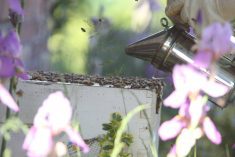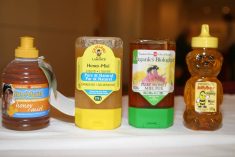WINNIPEG — Most Canadians are familiar with halal meat.
But other foods can also be halal, such as cheese, oat milk and candy.
Related story: Canadian honey still struggles to reach Japan
Recently, the Canadian Honey Council has realized the benefits of being halal, an Arabic word that translates into “lawful” or “permitted.”
The council and the honey industry decided to go halal because it could open up markets in Muslim countries.
Read Also

Russian wheat exports start to pick up the pace
Russia has had a slow start for its 2025-26 wheat export program, but the pace is starting to pick up and that is a bearish factor for prices.
“In the last month or month and a half, Canada got recognized for halal certification in honey,” said Rod Scarlett, executive director of the Canadian Honey Council.
There is really nothing distinct or different about halal honey. It’s mostly a paperwork process, Scarlett said.
However, that paperwork and certification could be important for Canadian beekeepers, who need new buyers for their honey.
Scarlett and other honey industry leaders travelled to Singapore in early April to attend the FHA Food & Beverage Expo.
“I think there are some tremendous opportunities in Southeast Asia,” Scarlett said.
For instance, Indonesia has a population of 275 million and more than 80 per cent are Muslim. There is also Bangladesh, with a population of 170 million.
Canada’s honey industry needs new buyers because established markets in Japan and the United States have become more challenging.
Less Canadian honey is going to Japan because of issues around trace amounts of herbicide in honey. As well, American honey packers are discounting Canadian product compared to domestically produced honey.
A U.S. Department of Agriculture report shows that honey produced on canola in North Dakota is valued at US$1.80 per lb, or C$2.50 per lb.
Meanwhile, Canadian honey produced on canola is priced at $1.85 per lb.
With the market issues in Japan and the U.S., prices paid to Canadian beekeepers have dropped sharply in the last couple of years.
In 2022, beekeepers were getting $2.75 to $3 per lb.
Now, it’s more like $1.75 to $2.00, Scarlett said.
If a beekeeper produces 500,000 lb. of honey, that translates to $500,000 less revenue compared to 2022.
















